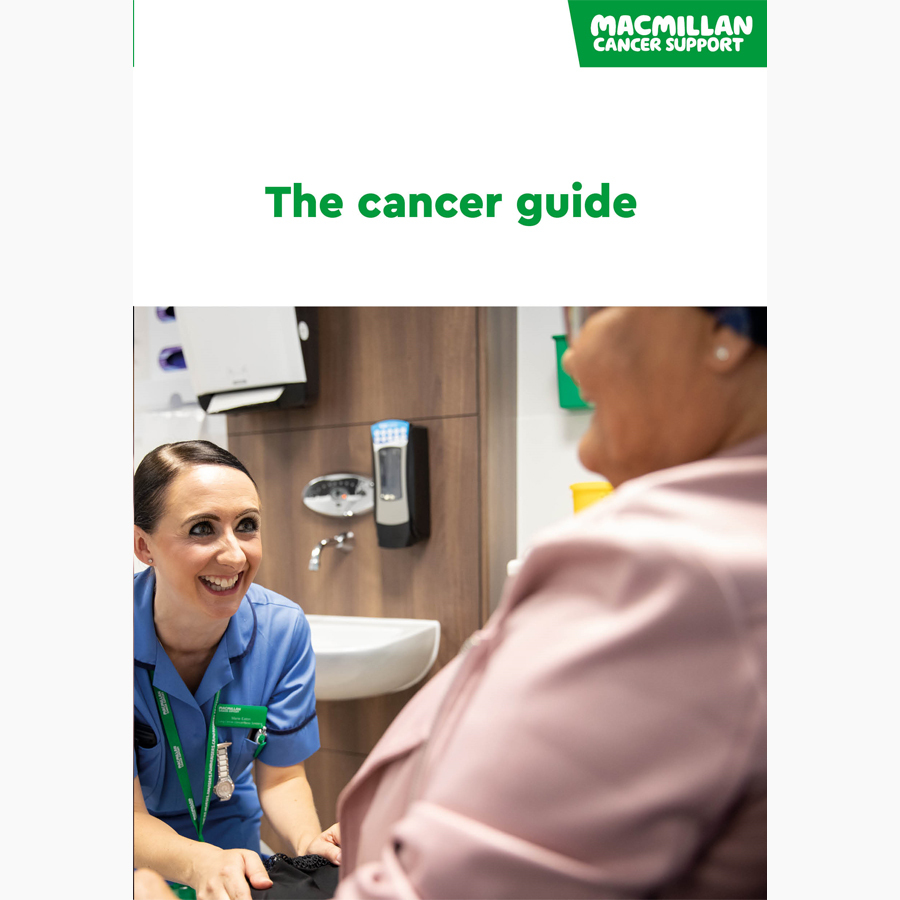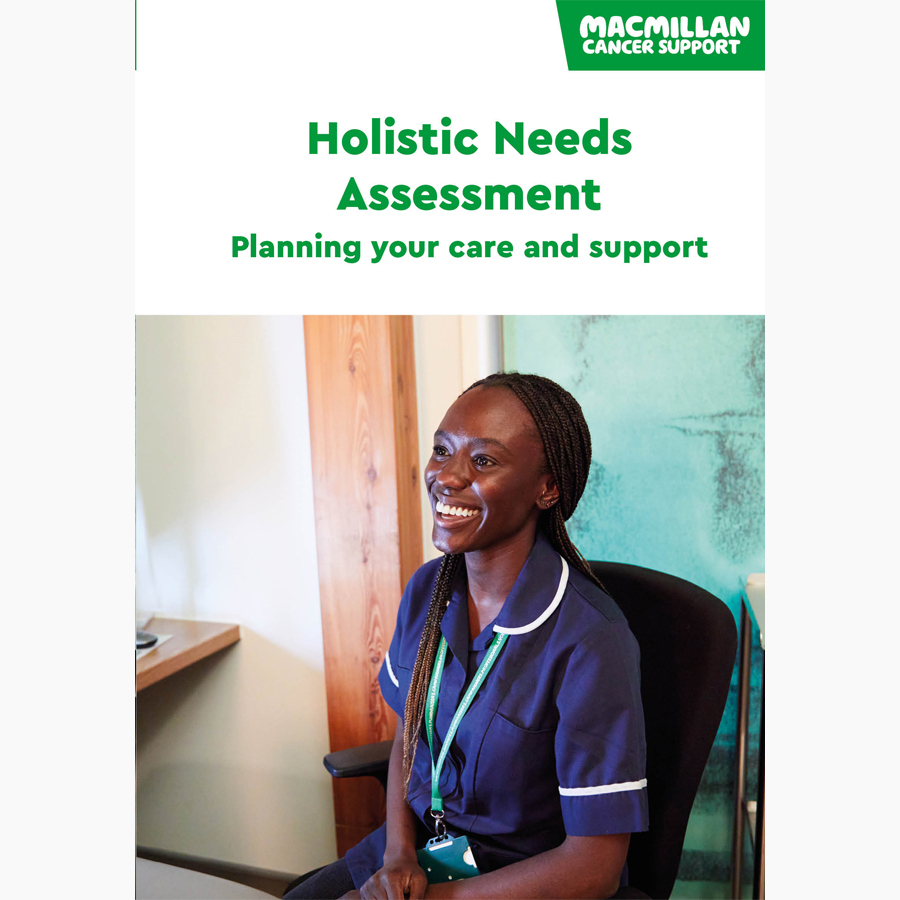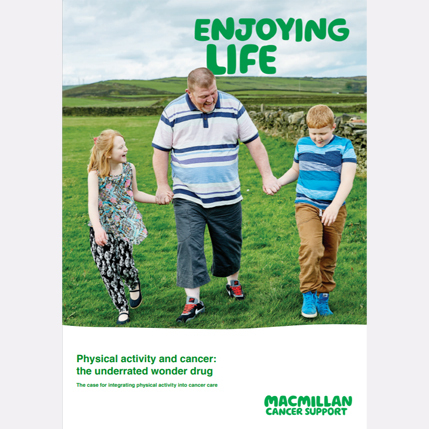10 Top Tips: Cancer Care Review Tips
On this page
-
1. Planning the Cancer Care Review
-
2. Scheduling the Cancer Care Review
-
3. Involving family members and carers
-
4. Using the Macmillan Cancer Care Review template
-
5. Preparing patients for the Cancer Care Review
-
6. Understanding treatment and late effects
-
7. Structure of the Cancer Care Review
-
8. Managing non-medical concerns
-
9. Health promotion
-
10. Communication with other healthcare professionals
-
For your patients
1. Planning the Cancer Care Review
What is a Cancer Care Review?
In the video above healthcare professionals share their experience of using cancer care reviews and how they can help with delivering personalised care for patients.
A Cancer Care Review (CCR) is a conversation between a patient and a healthcare professional about their cancer journey.
An effect CCR conversation should aim to discuss:
- the patient's diagnosis
- the cancer treatment and its possible consequences
- the patient's prescription entitlements (and a Medication Review)
- the patient and carers' information needs
- physical activity advice and signposting to local support services
- signposting to Macmillan and other organisations.
First steps
When planning a cancer care review, you should consider:
- your practice population
- the size of your cancer population
- the most common cancers within your population.
Then consider the most appropriate way to carry out the review.
Some patients may prefer this to be face-to-face. Others may prefer a virtual appointment.
With increasing numbers of people living with and beyond cancer, cancer follow up in primary care is likely to start to resemble that of other chronic diseases like COPD or Diabetes.
You may want to consider involving broader members of the Primary Care team such as practice nurses in the CCR process.
Related pages
2. Scheduling the Cancer Care Review
A CCR should always have a dedicated appointment slot. Ideally it would be an extended appointment. If this is not possible, then you may want to schedule an initial appointment with a follow up if necessary.
Setting aside an appointment in this way sends a powerful message that primary care is there to support those affected by cancer.
3. Involving family members and carers
Invite patients to involve a family member, carer or a close friend in their review. Having someone else at the cancer care review may:
- make your patient feel more supported
- enable them to raise important issues
- help them to recall more of the conversation later.
You will also get a much clearer idea of the impact of the diagnosis has had on the wider family group or in the patient's personal life.
The following booklets may also be useful for your patient and those that care for them to have at the appointment.
Booklets and resources
4. Using the Macmillan Cancer Care Review template
You should use Macmillan's national, integrated electronic CCR template within your Primary Care IT system to support a well-structured review.
This template can be used as an aide memoir when carrying out a CCR. It includes supporting information which can be shared with the patients as well as providing a helpful coded record of topics discussed.
For guidance on how to access the Macmillan CCR template within your IT system, please email us.
5. Preparing patients for the Cancer Care Review
Help patients to prepare for the CCR by sending them information in advance. You should explain the purpose of the review and whether they can bring up particular issues with you, like sexual or financial concerns.
Perhaps send them a version of the Holistic Needs Assessment concerns checklist or an alternative checklist to complete prior to the appointment. This will help them to better identify the issues that are important to them and that they need support with.
Make use of digital systems to send patients information more easily.
Below we have more information about Holistic Needs Assessments, including a booklet that may be helpful for your patients.
Related pages
Booklets and resources
6. Understanding treatment and late effects
It is important to check your patients understanding of their treatment and possible late side effects.
Ask about and record current or planned treatment with chemotherapy or radiotherapy. You should include what has been given. For radiotherapy, you should record where it has been given.
You may also want to check your patient's understanding of the purpose of any treatment. The type and location of treatments can have profound implications for the development of treatment side effects in the months and years after treatment ends.
You may want to signpost your patients to our information on the following subjects:
The pages contain useful information on these subjects, including where patients can go for further support.
7. Structure of the Cancer Care Review
A suggested structure for the CCR could include:
- Finding out what matters to them. You could use the six personalised care questions at the start of the review.
- Discussing their diagnosis, treatment and potential consequences. This could include the impact cancer has had on their physical and emotional health, as well as social and practical impacts.
- Reviewing medication.
- Finding out about the person's support network and checking if they themselves are a carer.
- Agreeing a date for the next review or that there will be another appointment at certain points of transition in their care, like at the end of their treatment.
- Giving the patient the opportunity to raise anything else they wish to discuss.
8. Managing non-medical concerns
The concerns uncovered in a CCR may not be medical or within your area of expertise.
It is important to be aware of services and support in your area. You may also want to involve other members of the team who may be better placed to help, such as social prescribers.
Alternatively, the patient may benefit from being signposted to Macmillan's cancer support and information services. You may want to refer them to the Macmillan Support Line, available on 0808 808 00 00 (available from 8am-8pm everyday) to find out more about our support.

Discover our support for your patients
9. Health promotion
The review may also be an opportunity for health promotion. Some patients may be more receptive to health advice following a cancer diagnosis.
There is increasing evidence that lifestyle changes and physical activity can be beneficial for people living with cancer. These changes can have a significant impact on both physical and psychological health. It can also help reduce the risk of recurrence and the impact of any treatment consequences.
It may be helpful to signpost your patients to the following information:
- Common questions about physical activity and cancer
- Getting ready for treatment - eating well and keeping active
- Lifestyle and well-being after treatment.
Below are also a list of resources and blogs that may be beneficial for your role.
Booklets and resources
10. Communication with other healthcare professionals
"Everyone's needs are different; we need to understand what is important to the individual so people can live the life they want to." - Dinah
When you have completed the CCR, give or send the patient a copy of their Personalised Care and Support Plan.
You may also want to consider sharing the information and support plans with their oncologist or clinical nurse specialist.
Improving communication around the patient helps ensure a better patient experience and improved personalised care.
"We need to ensure that patients experience good quality Cancer Care Reviews. And that healthcare staff are confident and knowledgeable in navigating any support the patient may need. "Personalised care should be meaningful and more than a tick box exercise." -Dinah, Macmillan Community Personalised Care Lead for the West Yorkshire and Harrogate Cancer Alliance.







